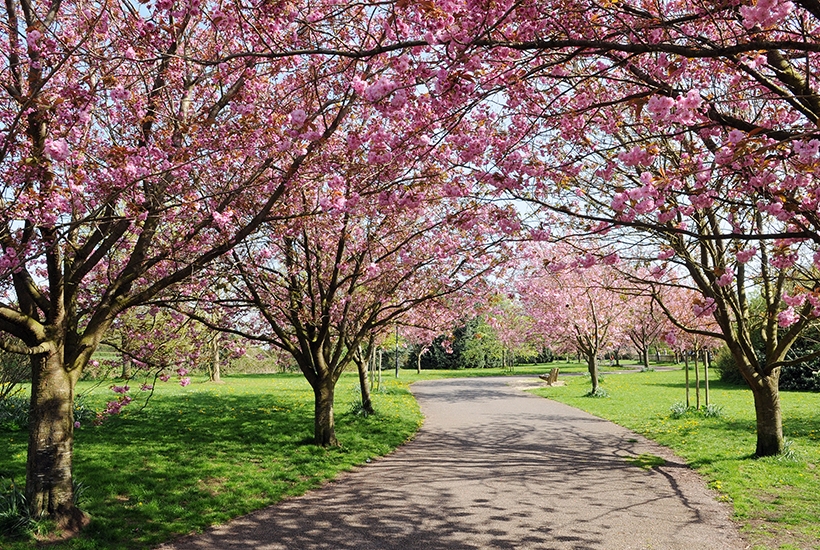Most people consider going for a walk or a run as a sort of optional leisure activity, something you get round to once you’ve been to the shops. But when the government announced its coronavirus restrictions, there it was in its own category of ‘essential activities’: daily exercise.
Yes, there have been rows about whether sunbathing or sitting on a bench to eat a snack are acceptable, but by and large the message has been clear: we need to get outside to stay well. But it’s not just exercise that’s essential to our lives, it’s nature too.
We have become used to thinking of nature as something we need to travel to see, a middle-class luxury along the lines of buying expensive cheese or owning a labradoodle: nice, but not the stuff of staying alive.

And yet there is a growing body of research that shows our minds and our bodies need nature. I’ve spent the past few years interviewing the scientists behind this research, visiting psychiatric hospitals and following people with mental illnesses as they try to manage their conditions using the great outdoors, and I’ve become convinced by the power of what I call the Natural Health Service.
Since the 1980s we have learned that views of nature — even just from a window — can help patients recover from surgery, improve mood, reduce anxiety and stress and raise self-esteem. Exercising in green spaces reduces someone’s perception of pain, which means they’re able to keep going and enjoy themselves for longer. Exercise itself both helps prevent mental illness and improves the symptoms of those suffering from it, and that includes serious, life-limiting conditions such as schizophrenia. The power of the outdoors is so great that not only are GPs encouraged to prescribe it to patients but it also forms a key part of treating those who are so unwell that they end up in hospital. At Bethlem Royal Hospital in south London there is a walled garden where inpatients, often suicidal and living on locked wards, do horticultural therapy, forest walks and a weekly run.
The rest of us have only recently started to understand what being locked up feels like. Many of us have been surprised by how much we are now relying on that daily exercise to stay sane — and surprised too by how much nature there is on our own doorsteps. When I encouraged people on social media to take a photo of a tree outside their window, one man replied that he’d thought it sad that he had no tree to photograph, before peering out into the street and realising that there was one right outside.
We aren’t going to go back to normal once this is over, and neither should we. The coronavirus has shown up both how much we need nature and how little our society currently values it. A 2014 study found that the most affluent 20 per cent of wards in England had five times the amount of green space compared with the most deprived 10 per cent. When councils started closing parks in urban areas, it was striking how agitated the MPs representing those seats became: they knew from endless constituency surgeries with families of five living in one council house bedroom how hard life can be even without a pandemic.
Affordable housing is often designed so tenants don’t have the same access to communal gardens as full-paying residents in the same development. Balconies are discouraged for fear the occupiers might store things on them and make the development look messy, and natural light restricted because big windows are expensive. This seems particularly unfair given there are higher rates of mental illness among those on low incomes.
Local authorities also see it as their job to chase nature away. Despite pompously declaring ‘climate emergencies’, many continue obsessively to strim grass verges of wild flowers and chop down street trees to save money on maintenance. Though Sheffield Council’s felling of 5,500 trees sparked a national row, much of this happens because residents complain about the ‘weeds’.
Our attitude needs to change. Universal access to healthcare is one of the shibboleths of British society: the Natural Health Service costs far less, saves the official NHS money, and should be seen as just as essential. And yet up to this point it hasn’t been, either in officialdom or our individual lives. Perhaps one of the few good things to emerge from this crisis will be the end of nature as an optional extra, and the start of us all wanting to protect it for the precious resource it really is.
The Natural Health Service is out now from Atlantic.







Comments